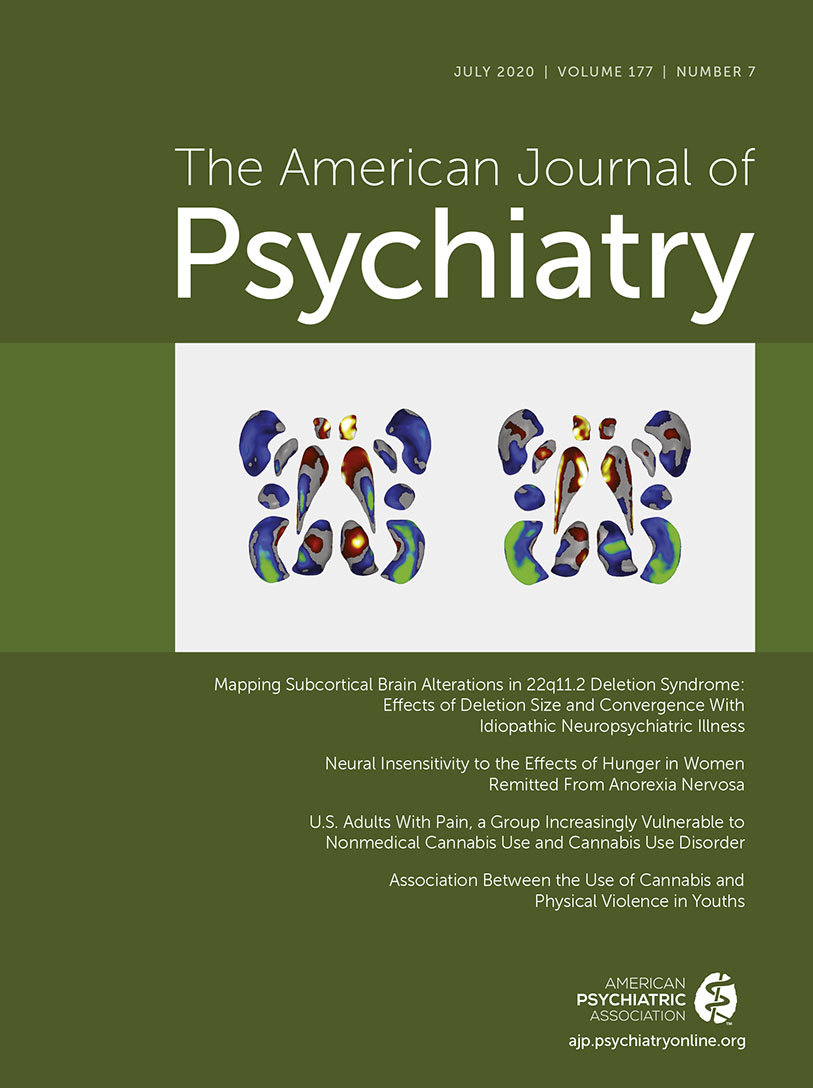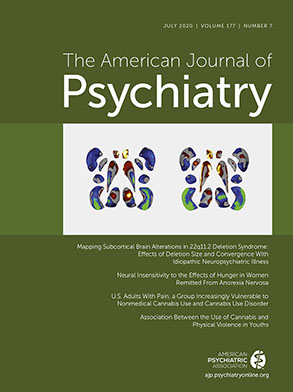Transmission of the 2019 novel coronavirus (COVID-19) (
1) has now widely and rapidly spread around the world. On March 11, 2020, the World Health Organization announced that COVID-19 is a pandemic (
2). The rapid transmission and mortality risk of the COVID-19 infection may increase the risk of mental health problems among healthy individuals in the general public and worsen preexisting psychiatric problems in psychiatric patients, although data are still being gathered. A constellation of difficult feelings and psychological distress, including panic, worries, and depression, could be triggered by the fear of possible infection, being quarantined at hospitals and home, social isolation, and even the shortage of protective gear.
A number of mental health surveys associated with the COVID-19 outbreak are being conducted in different vulnerable populations, which include infected patients, medical staff, students, and the general population. Liu et al. have reported results from a multicenter survey conducted among 1,563 medical staff members and found that the prevalence of depression and anxiety was 51% and 45%, respectively (
3). So far, data on the mental health repercussions of the COVID-19 pandemic in outpatient populations have not been available. Thus, we conducted a questionnaire survey, from February 25 to March 9, 2020, among outpatients who sought care in the Departments of Psychiatry, Neurology, and Sleep Medicine in West China Hospital of Sichuan University (Chengdu, China). A self-report questionnaire was completed by outpatients, who provided consent, via the WeChat-based survey program Questionnaire Star. A total of 2,065 out of 3,441 patients completed the survey, including 589 new patients and 1,476 existing patients. The prevalence rates of mental health problems related to the COVID-19 outbreak, including anxiety (defined as a total score ≥5 on the Generalized Anxiety Disorder 7-item scale), depression (defined as a total score ≥5 on the Patient Health Questionnaire 9-item scale), and insomnia (defined as a total score ≥8 on the Insomnia Severity Index), were 25.5%, 16.9%, and 26.2%, respectively. Furthermore, 20.9% of patients (N=300) with preexisting psychiatric disorders (N=1,434) reported a deterioration of their mental health condition related to the pandemic. In particular, transportation restrictions, isolation at home, and fear of cross-infection in hospitals have inevitably become major concerns and barriers to treatment for these patients during the outbreak. Our survey also showed that 24.5% of new patients, including those with anxiety (N=46), depression (N=37), insomnia (N=79), and psychosis (N=21), could not receive timely diagnoses and treatment. Similarly, 22.0% of existing patients with diagnosed mental disorders, including depression, bipolar disorders, and schizophrenia (N=315), could not receive routine psychiatric care because of suspended hospital visits. Consequently, 18.1% of patients (N=259) have self-reduced medication dosages, and 17.2% of patients (N=247) stopped taking their medication because they could not gain access to prescriptions from physicians during the outbreak. As the lifetime prevalence of mental disorders is 16.6% among adults in China (
4), millions of psychiatric patients may face barriers to help seeking for timely management of their mental health condition. The long-term repercussions of the viral pandemic on the management of psychiatric patients warrant further investigation. Nonetheless, our data reiterate the importance of implementing appropriate mental health care measures in the face of the COVID-19 pandemic.
In response to the COVID-19 outbreak, there have been ongoing measures and concerted efforts in China that emphasize the importance of dealing with the potentially concurrent mental health crisis. On January 26, 2020, the National Health Commission of China released principles for emergency psychological crisis intervention for the COVID-19 pandemic (
5). Mental health hotlines were quickly established across China and provided the public with counseling and psychological services. The telephone and Internet have been widely used to deliver mental health care services, and social media platforms (e.g., WeChat, Weibo) have been used to share strategies, guidelines, and education programs for managing potential mental distress. In addition, a series of self-help handbooks for psychological care associated with COVID-19 have been published by the China Association for Mental Health, medical institutions, and universities.
Furthermore, a number of hospitals in China have initiated telemedicine services for patients in need during the outbreak of COVID-19. On January 26, 2020, West China Hospital of Sichuan University, as one of the leading hospitals in China, opened a free online outpatient service involving more than 100 medical doctors across specialties. This online outpatient service was created mainly to provide prescriptions to existing patients and to offer consultation to new patients. Our hospital collaborated with commercial courier services to deliver medication to patients’ homes at no cost. To date, thousands of patients have received health care provided by this online outpatient service. Interestingly, only 7.4% of patients with mental disorders (N=136) in our survey have sought online help for medical care. Thus, there is a need to promote online mental health care services across China to manage mental health problems during the pandemic.
The long-term outcomes of the mental health interventions in both community and hospital settings need further evaluation to determine how we can ameliorate the negative effects of viral outbreaks in the general public, especially among vulnerable patients with mental health problems.
Acknowledgments
The authors thank the clinic nurses in the Departments of Psychiatry, Neurology, and Sleep Medicine, West China Hospital, Sichuan University.

